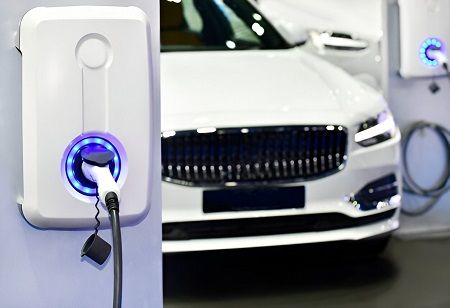
- China restricts the transfer of 8 key EV battery technologies.
- The rule may slow Chinese EV factory plans abroad, notably in the EU.
- Global automakers face setbacks due to reliance on Chinese tech.
The Chinese government announced it would limit the transfer of eight essential technologies related to manufacturing electric vehicle batteries, a step that may reinforce the nation’s leading position in electric car production.
The strategy might complicate the establishment of factories abroad for Chinese electric car manufacturers, as urged by the European Union. Effective immediately, the Ministry of Commerce announced that any foreign transfer of these technologies via trade, investment, or technological collaboration will necessitate prior approval from the Chinese government.
In the last five years, Chinese producers have made significant advancements in creating affordable batteries that offer substantial driving range for electric vehicles. The latest advancements in battery technology are crucial to China's achievement in producing electric vehicles that are significantly more affordable than those powered by electricity and gasoline from other nations.
The European Union has been urging Chinese car manufacturers and battery producers to establish operations within the bloc as an unspoken requirement for ongoing sales growth of Chinese vehicles in the region. The United States has grown more cautious regarding Chinese investment, yet proposals for a minimum of two Chinese electric vehicle battery plants have emerged in Michigan.
The latest limitation on battery technologies arrives just under three months after Beijing mandated licenses for exporting seven types of rare earth metals and the magnets that are produced from them. These limitations have already led to significant disruption for businesses in the West and Japan that produce vehicles, robots, and other high-tech devices needing electric motors with small yet strong rare-earth magnets.
Also Read: Nissan Cuts Leaf EV Output Amid China Rare Earth Limits
BYD, headquartered in Shenzhen, China, has recently surpassed Tesla as the leading electric car manufacturer globally, achieving a technological advancement five years ago with the launch of a new series of lithium-ion batteries. The new batteries utilized affordable iron and phosphate instead of an expensive chemistry involving nickel, cobalt, and manganese. The new chemistry seems to be less prone to igniting during collisions and other events.
BYD's main competitor, CATL, located in Ningde, China, launched comparable technology around the same period. Lithium iron phosphate batteries currently hold over fifty percent of the worldwide market and are predominantly produced in China. Companies in Japan, South Korea, Germany, and the United States that produce batteries and chemicals continue to depend primarily on chemistries involving nickel, cobalt, and manganese, yet they have been making efforts to advance.
BYD opted not to provide a comment on the announcement from the Ministry of Commerce on Tuesday evening. CATL, which stands for Contemporary Amperex Technology Company Ltd., also refrained from commenting. Ford Motor, which is constructing a $3 billion plant in Michigan to produce lithium iron phosphate batteries using CATL technology, also chose not to comment.

